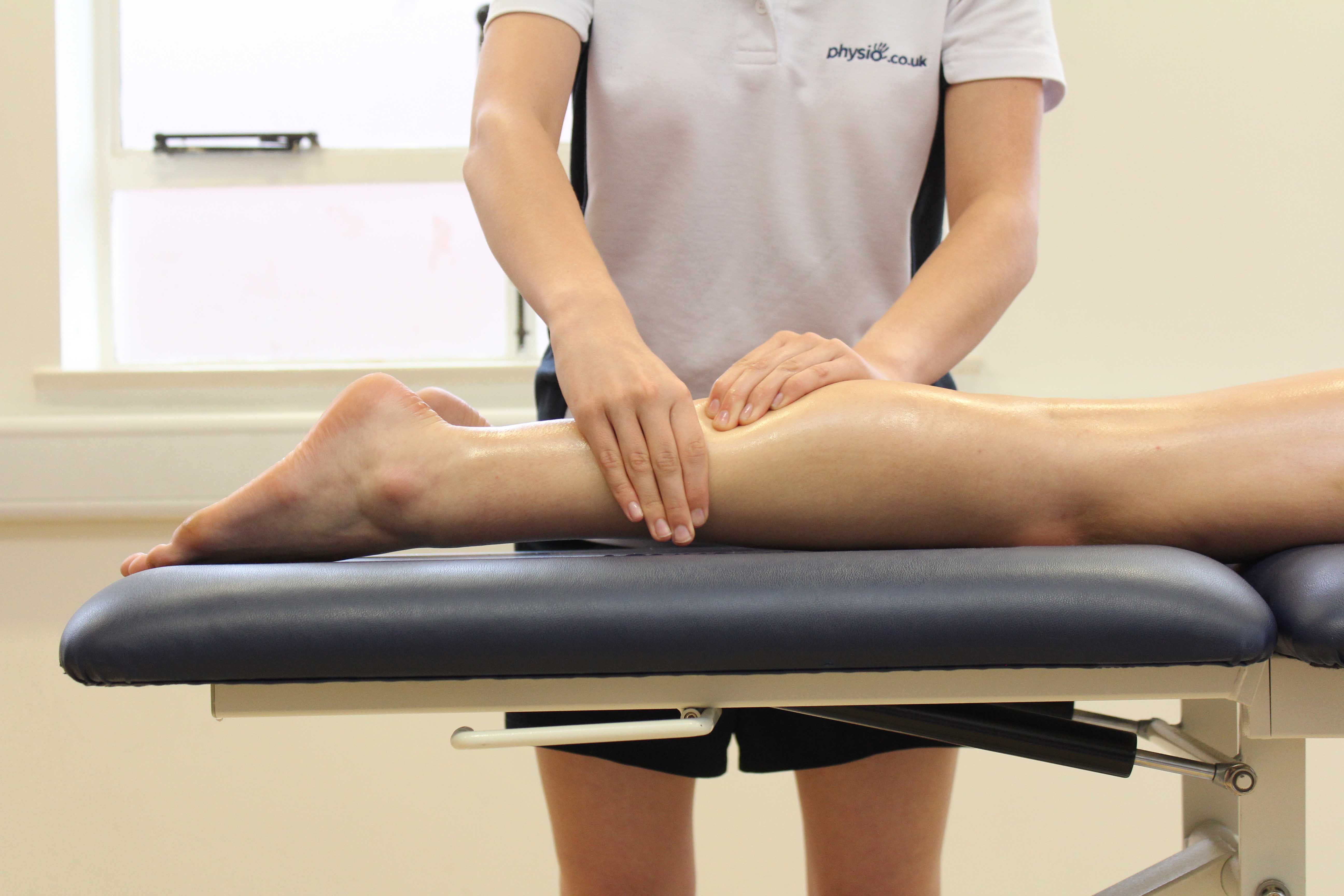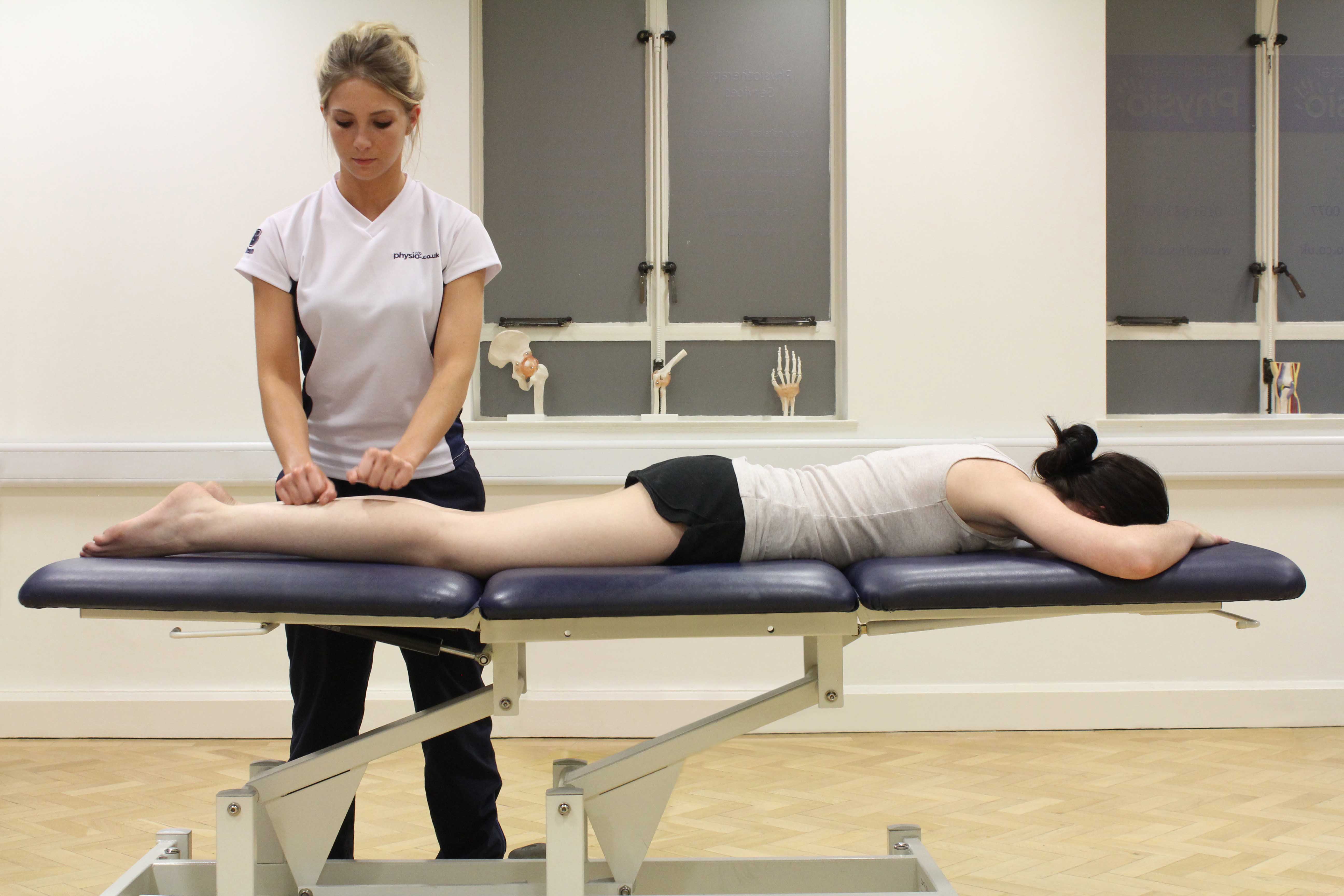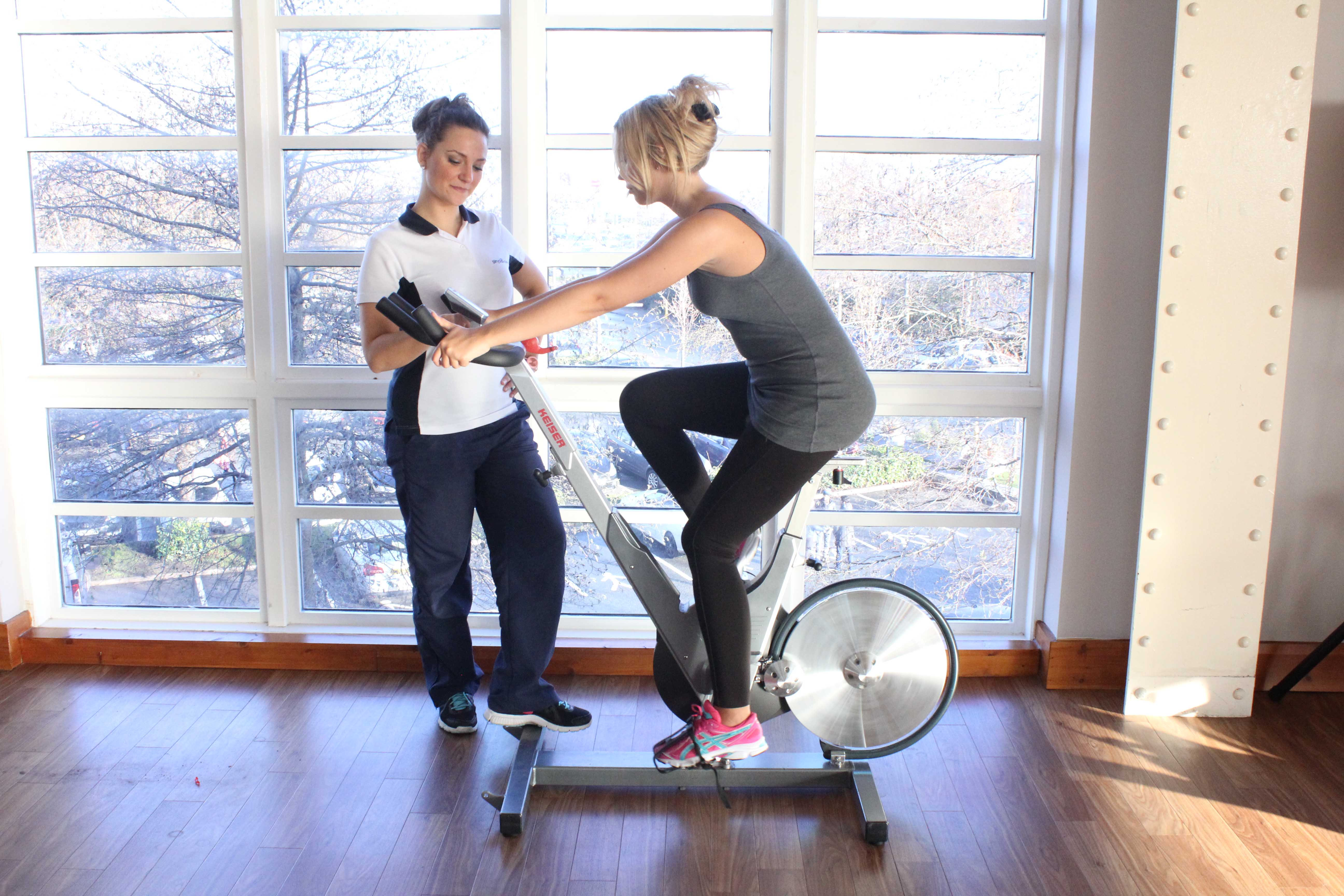What is a fractured tibia and fibula?
The tibia is the large bone located at the front of the thigh. The smaller lower leg bone attached to the outside of the tibia is called the fibula. If there is a break in these bones, this is known as a fractured tibia and fibula. Physiotherapy is essential to treat a fractured tibia and fibula.
 Above: Rolling soft tissue massage applied to the gastrocnemius muscle by experienced therapist
Above: Rolling soft tissue massage applied to the gastrocnemius muscle by experienced therapistHow does a fractured tibia and fibula happen?
A fractured tibia and fibula is usually caused when the leg is fixed to the floor and becomes twisted. It can also occur from a direct blow to the lower leg or a fall from height causing a fracture.
What are the symptoms of a fractured tibia and fibula?
Intense pain will be the initial symptoms that you will experience as a result of a fractured tibia and fibula. If the fracture is open (the skin is broken) there may also be bleeding. Closed fractures (the skin remains intact) often have bruising associated with them as key symptoms. Other symptoms of a fractured tibia and fibula include:
What should I do if I have a fractured tibia and fibula?
You will need to visit your nearest accident and emergency department as soon as possible if you suspect you may have a fractured tibia and fibula. The medial professionals will be able to X-ray your leg to confirm the location and type of fracture and decide on the best management of the injury. The broken bones may need to be realigned during an operation known as ‘open reduction internal fixation’. Regardless of the management of your fracture, physiotherapy will be a vital part of your rehabilitation.
To arrange a physiotherapy assessment call Physio.co.uk on 0330 088 7800 or book online.
 Above: Beating percussion massage applied to the gastrocnemius muscle by experienced therapist
Above: Beating percussion massage applied to the gastrocnemius muscle by experienced therapistWhat shouldn’t I do if I have a fractured tibia and fibula?
Do not continue to put weight through your fractured leg as this could cause further damage and delay the healing. Avoid any activities that will increase the blood flow to the area. This includes massage, heat packs, hot showers and excess alcohol consumption.
Physiotherapy treatment for a fractured tibia and fibula.
Physiotherapy will be an essential part of your recovery whether you have surgery or not. Your programme will be devised by your physiotherapist to meet your personal goals. Potential treatments include:
Are there any long-term complications of a fractured tibia and fibula?
A fractured tibia and fibula can be a complex injury and therefore may require a long rehabilitation period before you return to your normal sports or other activities of daily living. A thorough physiotherapy programme will help to optimise your recovery and help to minimise any complications that you may incur in the future.
 Above: Leg strengthening exercises on a bike supervised by an experienced physiotherapist
Above: Leg strengthening exercises on a bike supervised by an experienced physiotherapistTo arrange a physiotherapy assessment call Physio.co.uk on 0330 088 7800 or book online.

 0330 088 7800
0330 088 7800


































